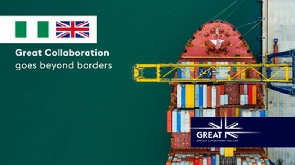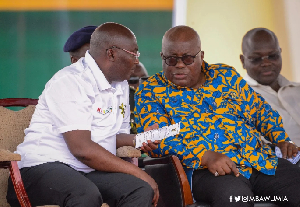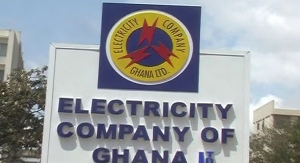Di United Kingdom don launch one new trade scheme wey go make trading rules simple and cut tariffs on products wey dem dey import from Nigeria plus oda developing kontris.
65 developing kontris including Nigeria dey eligible to benefit from dis scheme and all of dem togeda dey export ova £20bn in goods go di UK every year.
Di new Developing Countries Trading Scheme (DCTS) wey come into force on Monday 19 June, go benefit developing kontris wey be home to over three billion pipo wey dey find ways to diversify and increase dia exports.
UK Minister for International Trade Nigel Huddleston, wey launch di scheme say more dan half of di eligible kontris na from di African continent.
E say di UK new post-Brexit Developing Countries Trading Scheme “go remove or reduce tariffs and simplify trading rules so dat more products qualify for di scheme, wey make am to dey more generous pass di European Union scheme wey UK previously be member of.
Wetin di Developing Countries Trading Scheme (DCTS) mean
Di Developing Countries Trading Scheme (DCTS) na one scheme wey di UK goment introduce to help least developed kontris for di world export all dia products wit little or zero tax go di UK, except for arms and ammunitions.
According to UK Ministry of International Trade, di DCTS na one simpler and more generous preferential trading scheme wey dem design to boost trade wit developing kontris in order to support dia development.
Through dis scheme, plenty exporters go benefit from lower or zero tariffs on dia products.
Di DCTS cut import tax, remove conditions and make trading rules simple for developing kontris.
E go also benefit UK businesses and consumers as e don reduce di import cost of thousands of products from around di world.
Di scheme reduce prices on different kind of products and e save UK businesses over £770 million per year as e don cut off tariffs on over £9 billions of imports.
Di new post-Brexit trade scheme dey also aim to create opportunities for UK businesses to trade internationally and grow dia economy.
Di DCTS also enable UK businesses to fit access thousands of products from around di globe at lower prices, reducing costs for UK consumers.
UK Minister for International Trade Nigel Huddleston launch di scheme wen e dey on a visit to Ethiopia largest industrial business park, Bole Lemi.
Di DCTS cover 37 kontris for Africa, 26 for Asia/Oceania/Middle East and 2 for di Americas, e represent various and exciting trade opportunities around di world.
Na last year dem announce di scheme, and di legislation don since bring am into force.
UK dey import an average of £22.8 billion worth of goods from DCTS kontris ova di last three years.
Wen dem combine am wit UK network of eight Economic Partnership Agreements, di DCTS mean say over 90 developing kontris now benefit from duty-free or nearly duty-free trade.
Customs processes go remain di same as under current preferential trading arrangements but new tariffs and rules of origin for Least Developed Countries go apply.
How Nigeria and oda African kontris fit benefit from dis scheme
Over 99% of products wey Nigeria dey export go UK go automatically dey eligible for duty-free access to di UK.
Dis one mean say variety of products like olive oil, tomatoes, cocoa, among oda wey Nigeria plus oda African kontris dey import from Africa go di UK go benefit from lower or zero tariffs. Dis go save di kontris £500,000 on tariffs.
UK goment for dia Twitter account say, Nigeria go receive higher preferential access for almost 3,000 products as di kontri fall under enhanced preferences.
Dis one mean say kontris like Nigeria wey fall under dis category dey entitled to zero import tariffs on 92% of dia products lines under di DCTS.
"Nigeria go receive enhanced preferential access for almost 3,000 products. E.g.: 4.5% removed on cocoa paste, 26.5% removed on fruit juices, & 14% removed on prepared tomatoes." Di statement tok.
For example, products like cucumber, Fresh or chilled globe artichokes, Fresh or dried wilkings and similar citrus hybrids and Fresh strawberries go be 0% tariff.
Oga Nigel Huddleston tok say di "new scheme go benefit developing kontris wey dey find ways to diversify dia economy and increase exports, e go drive dia prosperity and reduce dia need for aid.
"E go also benefit traders around di world, including small and women-owned businesses wey we dey support through UK Trade Partnership programme.
"Di scheme benefit businesses all over di world and British companies wey dey trade wit these kontries in everyday products like bicycles and camping gear." E tok.
Di UK break down di 64 developing kontris wey go benefit from dis scheme into three groups.
Di Comprehensive Preferences: Dis na di most generous preferences under di scheme. Exporters for dis kontris dey entitled to zero import tarrifs on 99.8% of products – all products except arms and ammunitions.
Forty-seven kontries dey eligible for Comprehensive. Part of dem na;
Afghanistan, Comoros, Kiribati, Nepal, Tanzania Angola, Congo, Dem. Rep. Laos, Niger Togo, Bangladesh, Djibouti, Uganda, Senegal, Burkina Faso, Ethiopia, Malawi, Sierra Leone, Yemen, Burundi, Gambia, etc.
Enhanced Preferences;
Exporters under dis category dey eligible to zero% import tariffs on 92% of dia product lines under di DCTS.
Sixteen kontris qualify for Enhanced Preferences because di DCTS include eight additional kontris compared to di UK Generalised Scheme of Preferences (GSP).
Products wey no dey covered under Enhanced Preferences dey subject to tariff rates under di UK Global Tariff
Di kontris wey qualify na: Algeria, Nigeria, Bolivia, Niue, Cape Verde, Pakistan, Congo, Rep. Philippines, Cook Islands, Sri Lanka, Kyrgyz Republic, Syria, Micronesia, Tajikistan, Mongolia, Uzbekistan.
Standard Preferences;
Standard Preferences entitle exporters for eligible countries to 0% import tariffs on 65% of product lines, while a further 26% of product lines get reduced tariffs.
Na only two kontris dey eligible for Standard Preferences (India and Indonesia). Product lines wey di Standard Preferences no cover dey subject to rates under di UK GT.
BBC Pidgin of Tuesday, 20 June 2023
Source: BBC




















